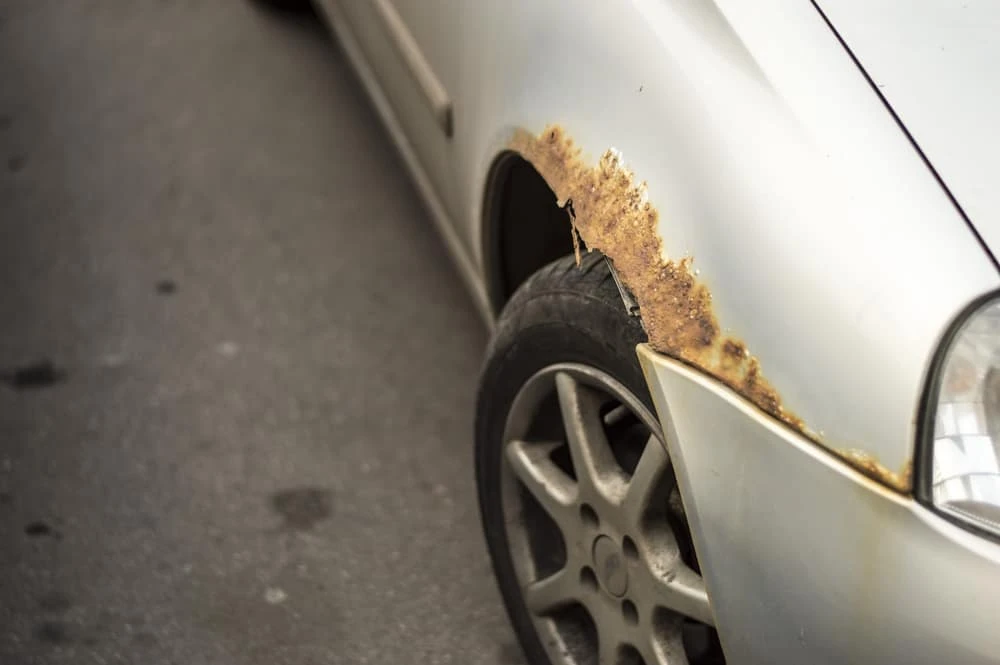In cars, oxidation is a sneaky and dangerous enemy that can cause serious mechanical problems. This blog explores the harmful effects and difficulties it can create, from damaged brake lines to weakened structures. Corrosion can turn a dependable vehicle into a nightmare on wheels, and we will uncover the hidden dangers beneath the surface. Join us to explore the mechanical problems that arise from rust.

The Dangers of Corrosion
Corrosion can silently and persistently wear away the metal surfaces of a car, leading to various mechanical problems. This damage is often hidden and can cause serious issues for important components like brake lines, fuel tanks, and exhaust systems. There are also Types of Rust that you can learn about.
Brake System Vulnerability
A vehicle's brake system has a weak point that oxidation can easily target. Corrosion can sneak into the brake lines and weaken their structure. This can cause leaks or even complete brake failure. As a result, the brakes may not work properly, feel spongy, or even experience brake fluid leakage.
Exhaust System Compromises
The exhaust system is, unfortunately, a common victim of tarnish, which can cause holes and leaks that impair engine performance, fuel efficiency, and emission control. This exposes occupants to dangerous gases such as carbon monoxide, making the engine louder. Regular inspections of the exhaust system are necessary to prevent these issues.
The Importance of Structural Integrity
Oxidation can seriously affect a vehicle's strength and safety, even though the damage it causes may not be immediately apparent. Rot slowly eats away at the metal framework that holds the car together, making it less able to withstand the force of collisions. This leaves passengers at greater risk of injury and the vehicle at risk of irreparable damage. To maintain a car's structural integrity, it is crucial to regularly inspect it and take preventative measures such as rustproofing and undercoating.
Suspension and Steering in Jeopardy
Oxidation can damage a car's suspension and steering systems, causing handling problems, vibrations, and even loss of control. Important parts like control arms, tie rods, and springs are particularly vulnerable. To prevent this, it is important to regularly maintain and lubricate your car and address tarnish issues as soon as they arise.
Electrical System Infiltration
Corrosion can affect a vehicle's electrical system even though it targets metal. When connections and wires corrode, the flow of electricity can be disrupted, causing various problems such as malfunctioning lights and power accessories and difficulty starting the engine. To prevent these issues, it is important to regularly inspect and take preventive measures, such as applying dielectric grease to maintain the electrical system's integrity.
Fuel System Conundrums
Tarnish can cause problems beyond what can be seen on the surface of a car. It can spread into the fuel system, causing blockages in fuel filters, injectors, and fuel tanks, leading to reduced fuel efficiency, engine misfires, and even severe engine damage. Regular maintenance, such as replacing fuel filters and inspecting fuel tanks periodically, is necessary to prevent these complications.
Conclusion:
Oxidation is a silent threat that slowly damages the inner workings of a vehicle, causing various mechanical issues. Even though it may not be mentioned often, its presence can be felt as it gradually weakens essential parts. All the corrosive effects can lead to significant problems, such as compromised brakes and weakened structures.
Understanding how corrosion works and how it can affect mechanical systems is important to keep our vehicles safe, performant, and long-lasting. Regularly maintaining and inspecting our vehicles and taking preventative measures can prevent rot from causing mechanical failures and protect our beloved automobiles.
If your car has been affected by corrosion, consider selling it. Corrosion can affect critical components, which could endanger the vehicle's safety. By parting ways with your corroded car, you can avoid potential safety concerns. Additionally, repairing the damage can be expensive and does not guarantee it will not happen again. Selling the car will save you on ongoing expenses and allow you to invest in a newer, more reliable vehicle. Repairs for corrosion can also be time-consuming and inconvenient, but selling the car eliminates the need for these repairs and frees up your valuable time.
Lastly, selling your rusty car opens an opportunity to upgrade to a newer vehicle with better safety features, fuel efficiency, and a more enjoyable driving experience. Ultimately, getting rid of an oxidized car is a practical choice that prioritizes safety, saves money and time, and allows for a fresh start with a more reliable vehicle.
If your vehicle has mechanical or rust-related problems and is ready to part ways with it, you may ask yourself, "Where can I sell my car?" Zeus - Cash For Junk Cars is here to assist you quickly. To begin the process, feel free to contact us via phone or text at 832-516-3533 and receive a free quote with no obligation.
